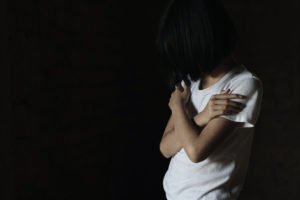Intra-Familial Child Sexual Abuse
 Intra-familial child sexual abuse refers to child sexual abuse (CSA) that occurs within a family environment. Perpetrators may or may not be related to the child. The key consideration is whether the abuser feels like family from the child’s point of view.
Intra-familial child sexual abuse refers to child sexual abuse (CSA) that occurs within a family environment. Perpetrators may or may not be related to the child. The key consideration is whether the abuser feels like family from the child’s point of view.
Around two-thirds of all CSA reported to the police is perpetrated by a family member or someone close to the child.
Where research has recorded the gender of perpetrators of intra-familial child sexual abuse, the vast majority have been found to be male, although abuse by women does occur. In around a quarter of cases, the perpetrator is under 18.
Child sexual abuse in the family is rarely an isolated occurrence and may go on for many years. Much abuse in the family remains undisclosed. Children may fear their abuser, not want their abuser to get into trouble, feel that the abuse was ‘their fault’, and feel responsible for what will happen to their family if they tell. Disabled children and some black, Asian and minority ethnic children face additional barriers. Abuse by a family member may be particularly traumatic because it involves high levels of betrayal, stigma and secrecy.
Child sexual abuse in the family is linked to a range of negative outcomes over the whole of the life course, including poorer physical and mental health, lower income, relationship difficulties and further violence and abuse. However, not all survivors experience long-term impacts. Much depends on the nature and duration of the abuse, the individual’s coping mechanisms, and the support they receive. Supportive responses from non-abusing carers are particularly important.
Effective support is critical to enable disclosure, and during investigation and legal proceedings. Therapeutic support for young people can have a positive impact but the availability of services remains piecemeal. Both adult survivors and children/young people value services that listen to, believe and respect them; where professionals are trustworthy, authentic, optimistic and encouraging, show care and compassion, facilitate choice, control and safety, and provide advocacy. It is important to provide support to the whole family, and particularly to non-abusing parents, following abuse.
For more information visit the Centre of Expertise on Child Sexual Abuse
Identifying and responding to Intra-Familial Child Sexual Abuse Training
Sarah’s Law
Sarah’s Law, or the Child Sex Offender Disclosure Scheme allows parents, carers and guardians to ask the police to tell them if someone has a criminal record for child sexual offences.
If police checks show the individual has a record for child sexual offences, or other offences that might put the child at risk, the police will consider sharing this information.
The police will only consider telling the person best placed to protect the child – usually a parent, carer or guardian – if the person being checked has a record of child sexual offences or other offences that indicate they may pose a risk to a child. The police will disclose information only if it is lawful, necessary and proportionate to do so in the interests of protecting the child, or children, from harm.
